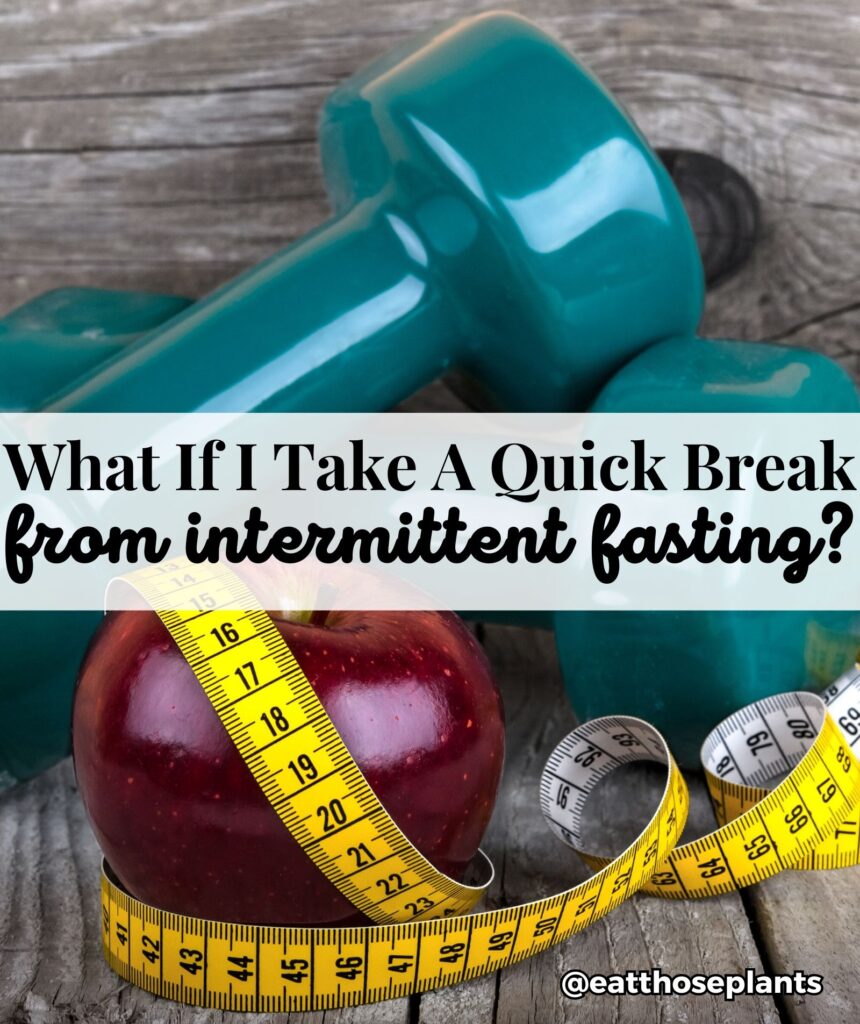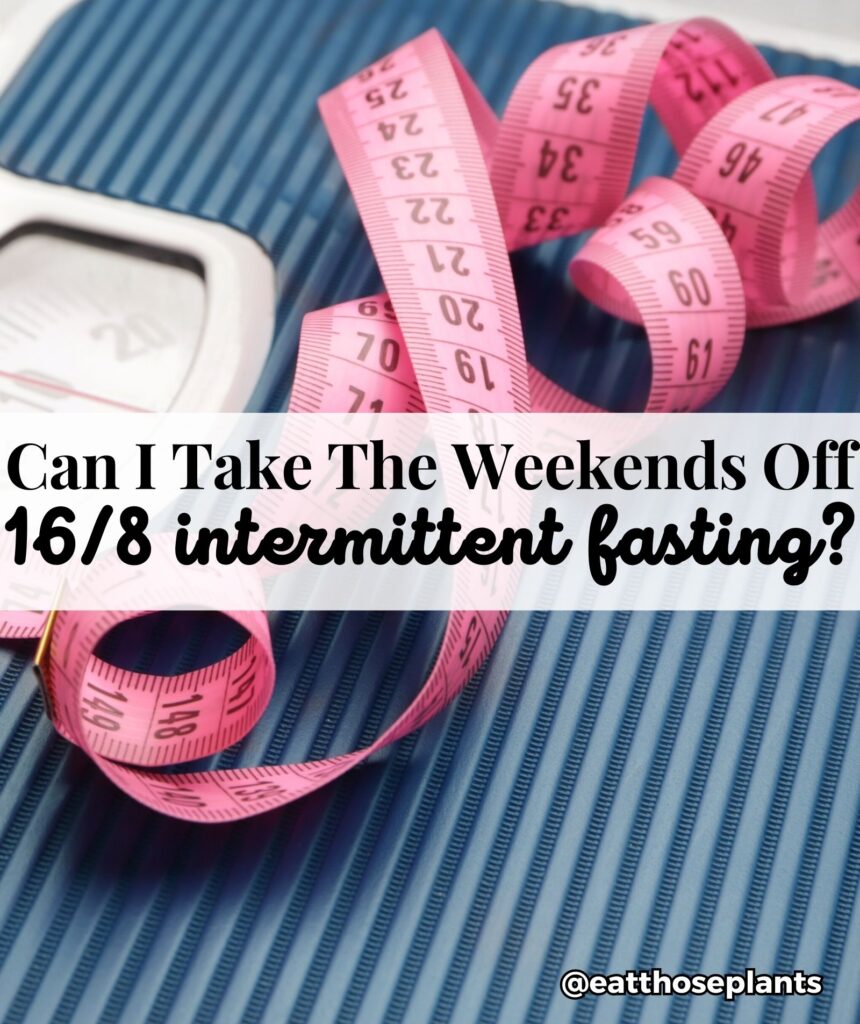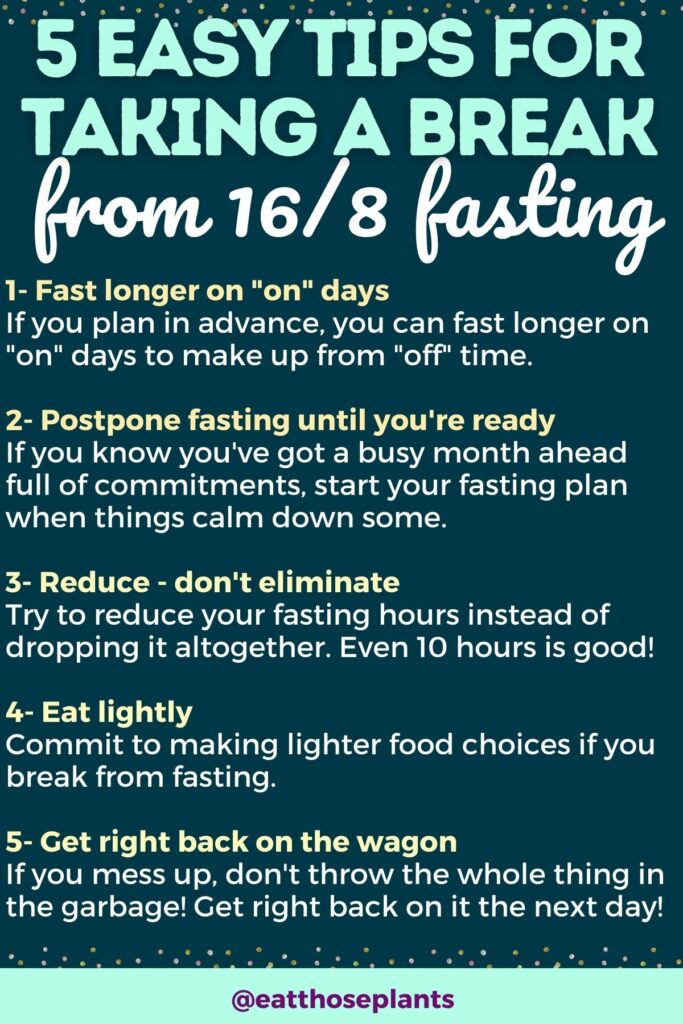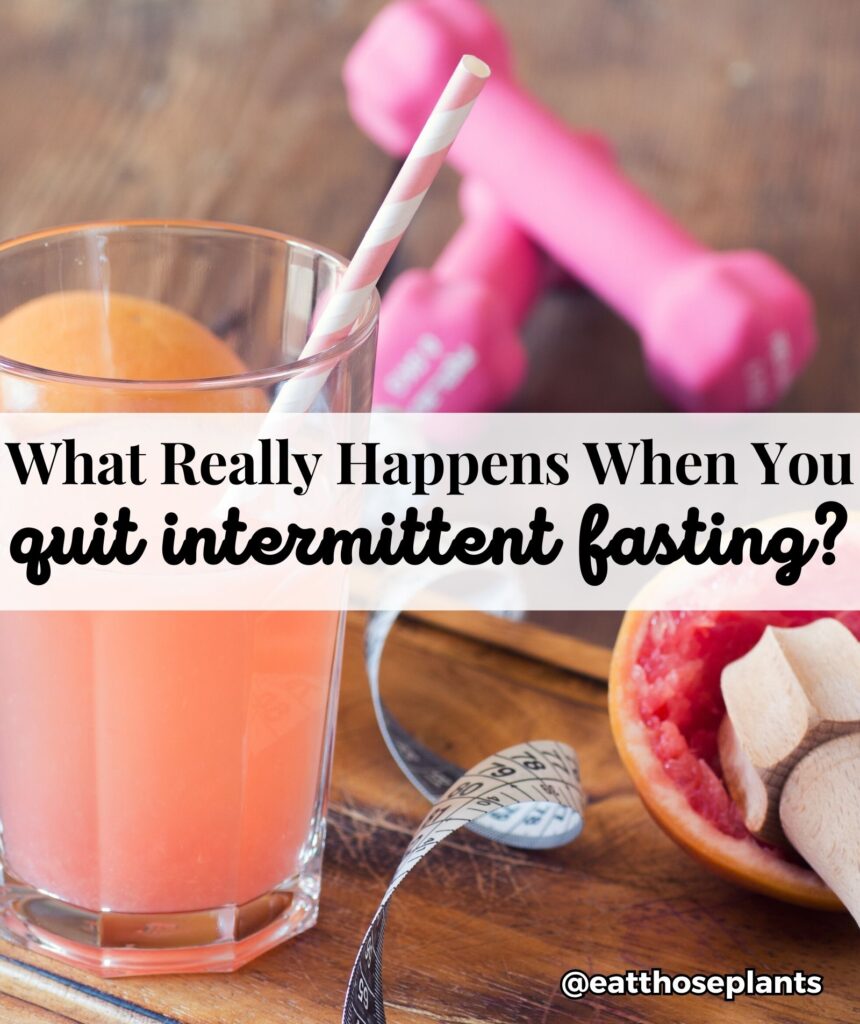If you’re reading this post, you probably already know by now what intermittent fasting is all about.
But just in case, I’ll tell you very briefly that intermittent fasting is a lifestyle where you eat all your day’s food within a small window of time. Usually within 8 hours, but some people go as low as fasting for 23 hours a day and eating one meal.
For more information on what fasting is all about, click here to read the complete fasting guide for beginners.
What Happens If I Break From Intermittent Fasting?

If you are pretty good about fasting on schedule most of the time, taking a break for a special occasion won’t hurt you too much.
In this situation, it’d be a good idea to at least have a good workout plan going, and take other measures to make sure you’re not falling totally off track.
The danger isn’t in one day or even one weekend off-plan. It’s falling into old patterns and habits that made you gain undesirable weight in the first place.
In my experience (and I’ve got a LOT of experience), it’s so easy to think you’re going to have a cheat meal and wind up with a cheat life.
So, no, taking a break for a special occasion or holiday won’t throw you off too bad. Not initially, at least.
Just make sure you don’t fall totally off the wagon.
Can I Take Weekends Off Intermittent Fasting?
The second question I get is people having standard life commitments that they don’t want to quit, yet they still want to fast most of the time.
Maybe they don’t want to quit at all, but you have no way to do fasting every day.
For example, if every Friday evening you meet up with your girlfriends from college and you go out to eat and grab a few drinks until later at night than the norm, you might wonder if you can fast correctly most of the time and just have that standing date.
Or if – like me – you find it easy to fast during the workweek, but you enjoy eating breakfast with your family when everybody’s home during the weekend.
The answer to this is – it depends.
It depends on how consistent you are most of the time, what you’ll be eating when you go off track, how active your lifestyle is, and again – how well you’re able to get back on track.
If you’re perfectly good 100% of the time but make an exception just for that one time each week, you’ll probably be okay.
But let’s be honest – if we all had perfect self-discipline or enough discipline to maintain that level of commitment, we wouldn’t be here in the first place.
So, in my opinion, for most of us, this is a slippery slope. BUT… trying this is better than nothing at all.
5 Tips To Increase Success Of Fasting Breaks
That said, there are a few things you can try to increase your success if you quit intermittent fasting… well… intermittently.
They are:
- Consider fasting longer on days when you’re “on” program to compensate for the breaks. So if every Friday you know you’re going off-plan, shoot for a 20-hour fast before Friday, then after Friday skip breakfast and lunch Saturday. More fasting hours is better.
- Postpone this until you’re stable. If at all possible, give yourself about a month of tried-and-true fasting full-out. If you can break from intermittent fasting on schedule after you’ve already seen good results, it’ll be easier to stick with it.
- Reduce your fasting window on those days – don’t eliminate it. Commit to still fasting 12 hours on your “off” days. Twelve hours is still enough to see results.
- Eat as clean as possible. You should aim for that anyway, but it’s worth repeating here.
- Get back on the wagon: If you mess up and go overboard, don’t quit all together! Take your “next best action” right away!
What Will Happen If You Quit Fasting Altogether?
If you’ve had success with losing weight through intermittent fasting, then get too comfortable with your new body and go back to eating at all hours of the day?
Hate to say it but… you’re going to gain weight.
Unless you meticulously track your calories, clean up your diet, and work out, you’ll be right back where you started. And probably worse.
I know. It’s a hot mess. Not fun to think or hear about, but it’s the truth!
You can NOT use intermittent fasting as a magic pill to lose weight fast, then go back to exactly what you were doing before. It doesn’t work that way.
The best thing is to work on improving your diet and finding exercises that you enjoy. That’s the only way to gain real flexibility in life.
Use intermittent fasting as a tool to give you leverage to overhaul your life for the better.
Allow it to help you create a more wholesome lifestyle that you can sustain for the long term.
Because many people do go on to keep intermittent fasting as part of their lifestyle for years and years, but many do not.
It’s essential to build a solid foundation of quality lifestyle habits that can keep you slim, trim, and happy in the long run.
Final thoughts
I hope you found this article useful and got something out of it!
Intermittent fasting is a quick way to jumpstart your weight loss journey, but you definitely do have to work on changing your lifestyle all together over time if you want to succeed long-term.
I know that you can do it if you put your mind to it.
I believe in you and if you believe in yourself too – you can absolutely achieve that dream body that you crave and deserve.
Happy fasting! 🙂







